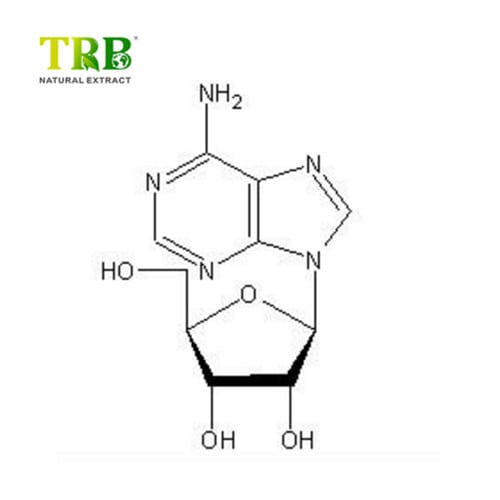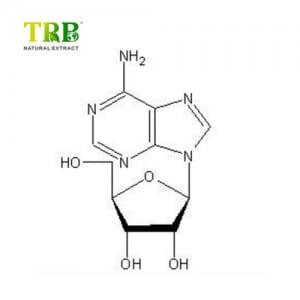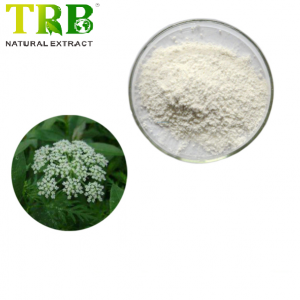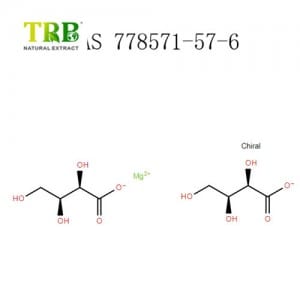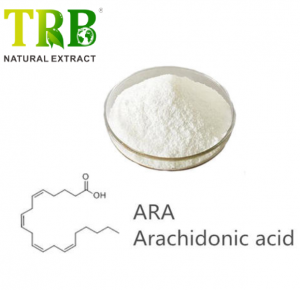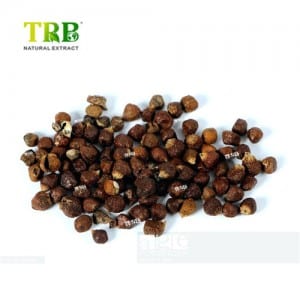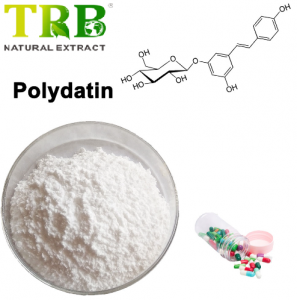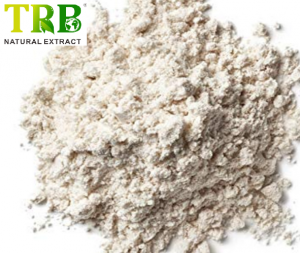Product Name:Adenosine
Other Name:Adenine riboside
CAS No:58-61-7
Molecular Formula: C10H13N5O4
Molecular weight: 267.24
EINECS NO.: 200-389-9
Melting point: 234-236ºC
Specification:99%~102% by HPLC
Appearance:White Powder with characteristic odor and taste
GMO Status:GMO Free
Packing: in 25kgs fiber drums
Storage:Keep container unopened in cool, dry place,Keep away from strong light
Shelf Life:24 months from date of production
Adenosine Product Description
Product Overview
Adenosine (CAS: 58-61-7), a naturally occurring nucleoside composed of adenine and D-ribose, plays vital roles in cellular energy transfer (ATP/ADP) and signaling pathways. It is widely used in cardiovascular therapy, cancer research, and biochemical studies.
Key Chemical Properties
- Molecular Formula: C₁₀H₁₃N₅O₄
- Molecular Weight: 267.24 g/mol
- Purity: ≥98% (HPLC confirmed)
- Solubility: Soluble in DMSO (10 mM solution available) and PBS.
Pharmacological Actions & Applications
- Cardiovascular Therapy
- Antiarrhythmic: Rapidly terminates paroxysmal supraventricular tachycardia (PSVT) by slowing AV node conduction. Brand names: Adenocard®, Adenoscan® (FDA-approved for intravenous use).
- Myocardial Perfusion Imaging: Enhances coronary blood flow during stress testing.
- Oncology Research
- Inhibits proliferation of prostate cancer cells (DU-145, PC3) by inducing cell cycle arrest.
- Triggers apoptosis in HepG2 liver cancer cells via endoplasmic reticulum stress.
- Neurological & Anti-inflammatory Effects
- Exhibits antidepressant-like effects in murine models (tail suspension test).
- Reduces neuropathic pain and modulates inflammation.
- Cosmetic Applications
- Featured in anti-aging formulations (27% of cosmetics) for skin conditioning and repair.
Available Forms & Packaging
- Powder: 500 mg, 1 g, 5 g (lyophilized, ≥98% purity).
- Solution: 10 mM in DMSO (1 mL/vial).
- Storage: Store at -20°C in dry conditions; avoid freeze-thaw cycles.
Dosage & Administration
- Intravenous Use:
- Adults: Initial dose 6 mg rapid bolus, may increase to 12 mg if needed (max 30 mg/day).
- Pediatric: 0.05–0.1 mg/kg.
- Research Use:
- Cell studies: 1.0–4.0 mM for 12–24 hours.
Safety & Precautions
- Side Effects: Facial flushing, chest pain, dyspnea, hypotension. Discontinue if severe reactions occur.
- Contraindications: Avoid in unstable angina or asthma.
- Handling: Use PPE (gloves, lab coat); for research only—not for human consumption.
Regulatory & Quality Compliance
- FDA Status: Approved for cardiac indications (NDA 020031).
- Certifications: Complies with USP/EP standards
- keywords: Adenosine, Antiarrhythmic, CAS 58-61-7, Adenocard, Myocardial Perfusion
